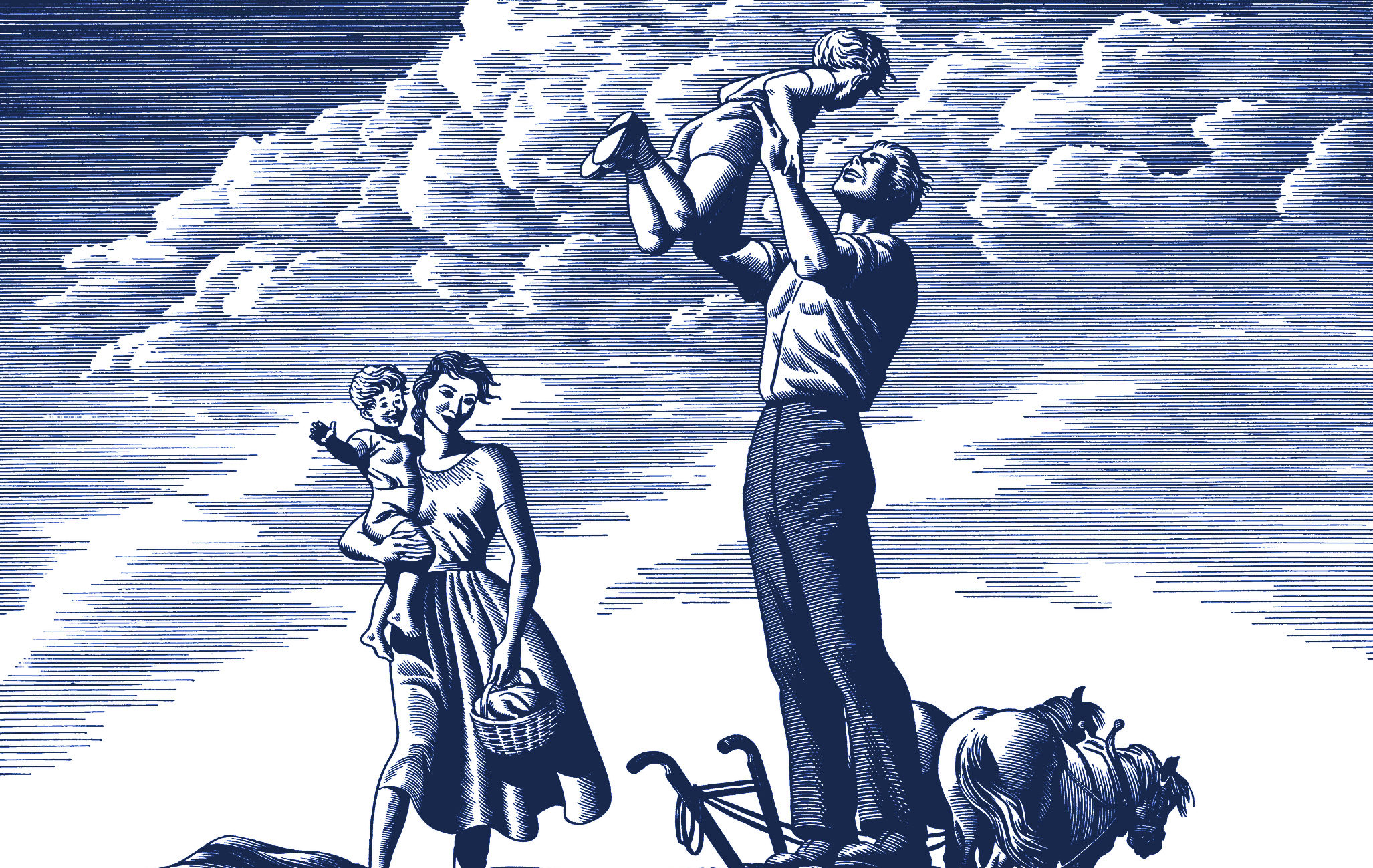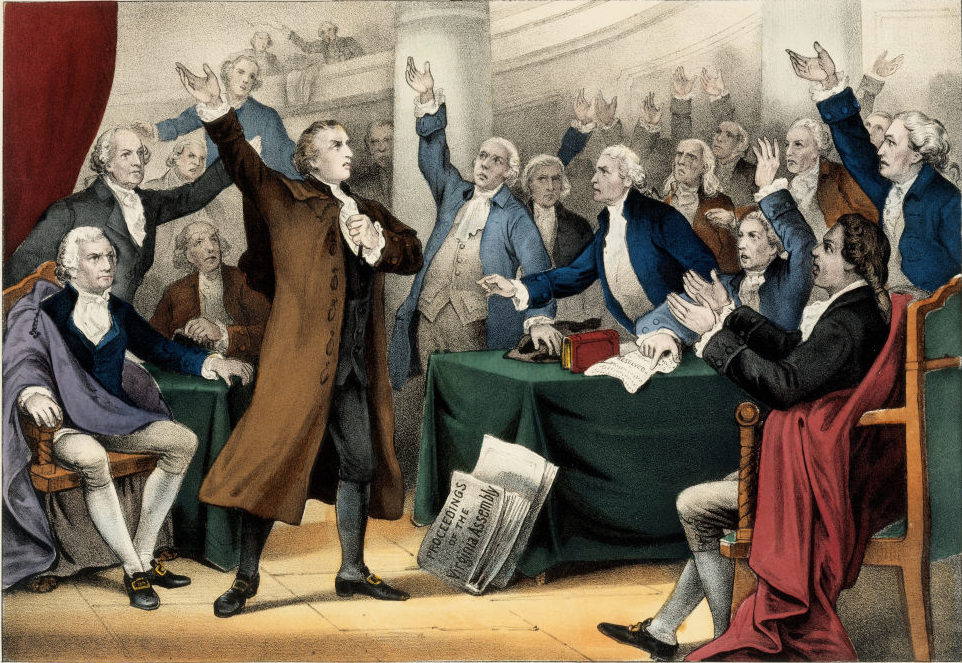Restoring trust in America’s constitutional system will require some deference on the part of SCOTUS.
Living Dobbs

The pro-life movement must become a pro-life culture.
As many writers and pundits have already noted, the ruling in Dobbs v. Jackson Women’s Health Organization is not the end of the abortion debate in America, but the beginning. Instead of the Supreme Court issuing laws on abortion based on arbitrary criteria like trimesters and viability, these laws will be made democratically by state legislatures. As one might expect, more conservative states like South Dakota and Texas have banned abortion completely, while more progressive states like New York or California will vote to keep it legal up until birth.
So how should the pro-life movement proceed at this point? Should it continue its campaign for life, doing annual marches, hosting pro-life events, and deploying pro-life apologists in the public square? Should it step this up and start making demands on conservative lawmakers who have a role now in deciding the fate of the unborn?
By all means, this campaign for life must continue, but it’s also time to expand the message and consider the culture in addition to the law. In this regard, it might be helpful to compare the Dobbs decision to Emperor Constantine’s decision to legalize Christianity in the Roman Empire. Despite being a major religion by that time, Christianity could only start transforming Roman culture after the Edict of Milan (hear me out), which mandated religious tolerance in the empire. Christians needed the protection of the law so they could come out of the catacombs and start participating in public life. This meant they could build churches, preach to different people, build schools, and, most importantly, make Christianity something normal rather than secret and transgressive.
Similarly, now that abortion is no longer granted blanket protection across America, the pro-life movement has the chance to change the culture. This means pro-lifers should see themselves less as protesting outsiders and more as participants in a culture of life. As such, they need to normalize the values and perspectives that promote childbirth and family.
Arguments are still going to be necessary, especially when laws are crafted or challenged, but in the cultural realm, narratives are key. Arguments engage the mind with claims and abstractions, but narratives make those claims and abstractions tangible and engage the emotions. Being against abortion is fine when uniting a broad coalition of individuals with different backgrounds, but it’s somewhat limited as the basis for building community.
For this reason, pro-lifers need to tell stories about family, parenthood, and by extension marriage. They need to celebrate mothers who go through the trials of pregnancy, delivery, and childcare. They need to cheer on fathers who provide for their families and help with raising the kids. And, for the sake of the children, they need to promote strong marriages between parents and reject the harm brought on by promiscuity, divorce, and surrogacy.
This might be a bridge too far for some pro-lifers, but it’s the next logical step. Popular media has normalized childlessness and abnormalized family to such an extent that many adults of childbearing age now think it’s devastating to both oneself and the planet to have kids. This can be seen in the way abortion has evolved from being a necessary evil to an expression of freedom and empowerment. As the recent Washington Post story about 18-year-old mother Brooke Alexander suggests, why get married and have kids when you can possibly be a real estate agent and have casual couplings with a deadbeat at the skatepark?
Rather, it should be the reverse: childless adults should be getting weird looks (yes, that means you, Chris Evans!), and parents should be praised and supported at every turn. Adults who marry and have children are undertaking a selfless task that requires many lifelong sacrifices. By contrast, there’s no way around the fact that adults who actively choose not to marry or have children are engaging in selfishness. It seems clear which one a prosperous society should normalize and encourage.
Also important is the way parents are praised and supported, so as to establish a set of values that underlies a particular culture. Parents should be praised as parents, not simply child bearers. Parenthood is a way of life that leads to more life. Moreover, that life is more than just physical, but also spiritual. Parents don’t just produce anonymous offspring, they raise human beings and help them live out happy, fruitful lives.
And no institution or expert can replace the parent. The same can’t be said for the childless adult. It’s a positive sign that a recent Pew survey found that an increasing share of Americans now see single motherhood and cohabitation as “bad for society.” So maybe the culture is changing for the better already.
For those who doubt the possibility of building a robust culture of life, they should remember that this used to be the norm, especially in Christian communities. Once upon a time, the Catholic Church extolled the vocations of fatherhood and motherhood and encouraged young adults to marry or take religious vows. Then a few decades ago, it became popular to call single life a vocation, but this never made any sense. A Catholic culture could only be realized by priests and parents committed to the faith, not single people looking for a good fit for their lifestyle.
The same should be said for the country. American culture, and Western culture in general, is currently in decline because fewer people are marrying and having children. Consequently, fewer people are committing to the American ideal, which is to use one’s God-given freedoms to build up a home and community.
As Fr. Paul D. Scalia (son of late Justice Antonin Scalia) explains in a recent essay: “True freedom is both from and for. Our mistakes about freedom deny one of those prepositions or the other. On one extreme is the fear of being freed from what we know…. On the other extreme is the violation of freedom by excess – that is, to think that it’s not for anything other than whatever we want.” In a true culture of life, people are free for parenthood, not from it.
But if so many young adults reject this premise, then it really won’t matter if their particular state bans abortions. They need to be invested in a culture of life and seek the joy and fulfillment of having a family. With Dobbs, the pro-life movement has won legitimacy in the minds of Americans (no matter what Alexandria Ocasio-Cortez might say). Now a pro-life culture has to win their hearts.
The American Mind presents a range of perspectives. Views are writers’ own and do not necessarily represent those of The Claremont Institute.
The American Mind is a publication of the Claremont Institute, a non-profit 501(c)(3) organization, dedicated to restoring the principles of the American Founding to their rightful, preeminent authority in our national life. Interested in supporting our work? Gifts to the Claremont Institute are tax-deductible.
Pro-abortion reactions to the Dobbs leak reveal idolatry for what it is.
How natural law limits state power.
The Constitution cannot, and should not, be twisted to favor abortion.
After Roe, America will face a fundamental question.
Are we ready for life after Roe?






